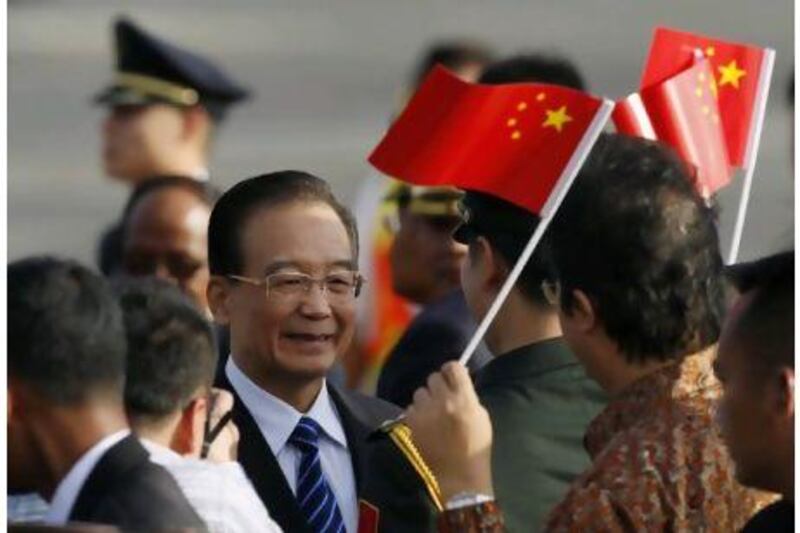BEIJING // As world leaders hold talks this weekend in Bali as part of the East Asia Summit, the South China Sea is likely to be a major topic of debate.
China claims all of the South China Sea as part of its territory and has disputes over this with five other nations. It has said it is not keen for the issue to be discussed, but the United States, sending its president to the summit for the first time, has indicated it holds the opposite view.
The tensions come as the US, traditionally the dominant power in Asia-Pacific, strengthens it engagement in the region to keep in check China's regional ambitions.
The two-day East Asia Summit, which starts tomorrow, includes the 10 members of the Association of South-east Asian Nations (Asean), which began their talks yesterday, plus the United States, Russia, China, India, South Korea, Japan, Australia and New Zealand. The US president, Barack Obama, and the Chinese premier, Wen Jiabao, are among those attending.
This week, the US left no doubt it is prepared to react to a China emboldened by nearly double-digit annual economic growth and two decades of heavy defence spending.
At the recent Asia-Pacific Economic Cooperation summit in Hawaii, Mr Obama accused China of "gaming the system" in its dealings with economic partners amid continued concern over what many see as an undervalued Chinese currency.
In Australia this week, Mr Obama said the US would be increasing its military presence by stationing marines at a base near Darwin.
Also this week, the US secretary of state, Hillary Clinton, signed a declaration with her Philippine counterpart, Albert del Rosario, saying there should be multilateral talks over the South China Sea, a position that directly conflicts with China's view that issues should be resolved bilaterally.
Mrs Clinton has previously incurred China’s anger by asserting the US’s strategic interest in the South China Sea, through which half the world’s traffic in oil and gas and a third of seaborne trade passes.
The potential for tensions to grow was shown last year when Chinese ships were involved in disputes in the South China Sea with Philippine and Vietnamese vessels, as the region's nations vie for access to key energy resources.
Beijing yesterday made it clear it was unimpressed by the US's moves to expand its role in the region. The state-run Xinhua news agency said "every country in the region" has "good reason to question the United States' ambition".
"Is there any country in the region that wants the United States to be its leader? The answer would probably be a resounding No," the agency said.
Yet many South-east Asian countries, including the Philippines, have shown themselves happy for the US to engage as a counterweight to China.
Alan Chong, of the S Rajaratnam School of International Studies in Singapore, said: "Everyone in Asean would welcome China's economic influence but, on the other hand, every single member of Asean is probably worried in private about China's muscularity in its recent diplomatic position."






